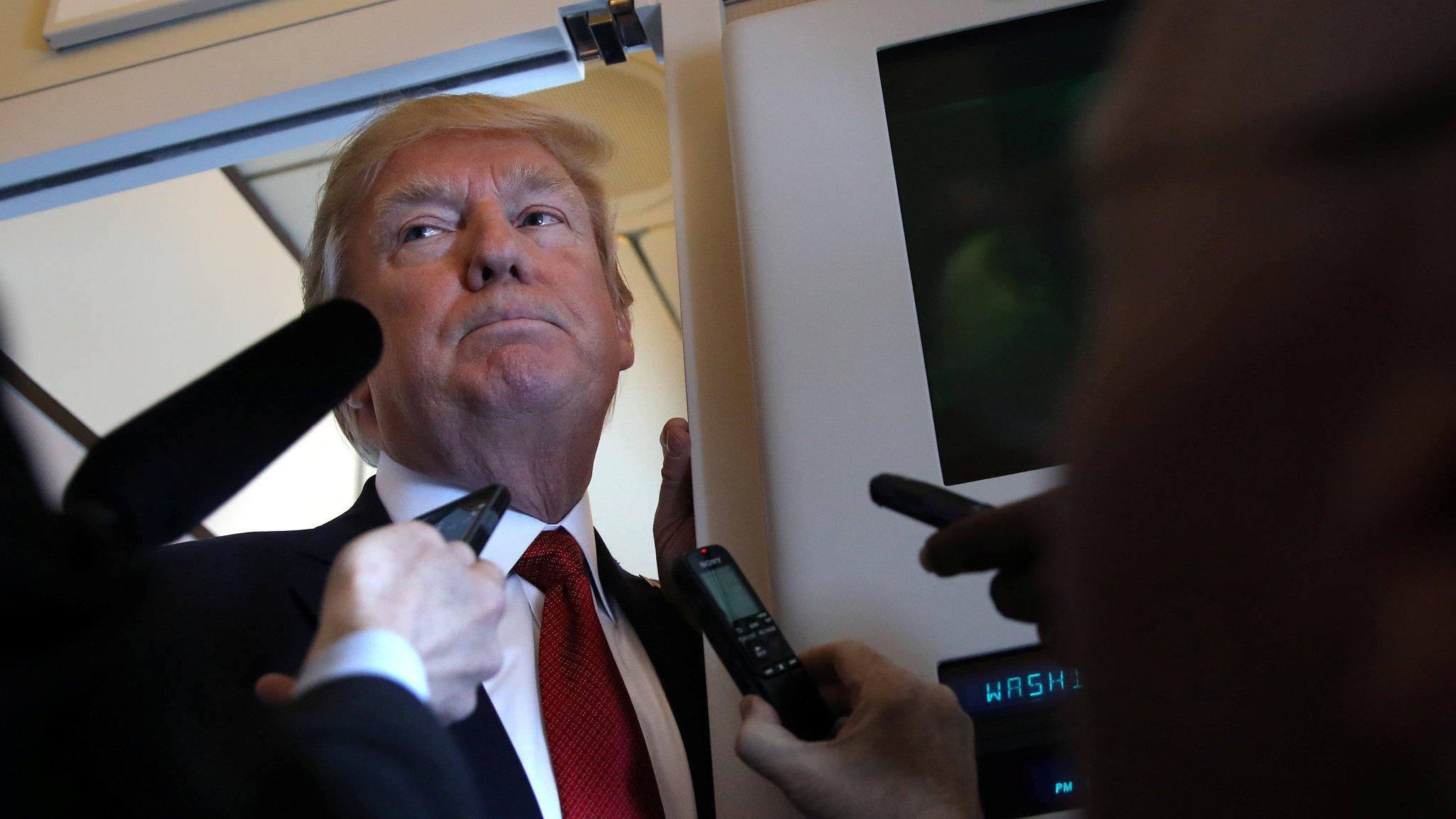Trumplomacy: Five key things we learned from US air strike
- Published
WATCH: What is Trump's plan in Syria?
US President Donald Trump has ordered the first direct US military action against Syria's government in the six-year-old war. What are the key things we have learned from this?
This is a dramatic shift in US Middle East policy
This is the first time the US has attacked the Syrian regime. President Barack Obama authorised covert training and weapons to some opposition fighters but never directly targeted the government of Bashar al Assad.
At significant moments in the conflict, such as the 2013 chemical weapons attack and the 2016 bombardment of Aleppo - he explored options for military responses to regime atrocities.
But he always concluded that any US military intervention in the civil war would only escalate the violence.
Towards the end of his presidency he became focused on fighting the Islamic State group, because he saw it as a direct threat to US interests, and because it was a menace on which regional and international parties could agree, unlike the civil war.
It's a U-turn by Trump
Donald Trump campaigned on a platform of no-war in Syria, using that stance to paint Hillary Clinton as an irresponsible hawk.
He was ambivalent about Bashar al Assad and, even more than Obama, said he would focus entirely on the fight against Islamic State militants.
Some of his far-right supporters feel betrayed by a man who promoted himself as a non-interventionist who would not draw the US into foreign conflicts.
Trump's senior officials said his sudden pivot was grounded on a calculated desire to send a message of deterrence on the use of chemical weapons.
Rescue workers said many children were among those killed or injured in the suspected chemical attack in Idlib
But his public announcements suggest at least partly an impulsive, emotional response to the pictures of suffering children.
And a desire to look different from Obama when it came to red lines - a chance to show he would respond with military force, unlike his predecessor.
It is not an attempt to topple Assad
This is a limited strike responding to the chemical weapons attack, a one-off. It is not the opening of a new front in a war against Assad.
The Secretary of State Rex Tillerson says the US military strategy in Syria hasn't changed, it's still focused on defeating the so-called Islamic State.
However, the administration has adopted a much tougher line on Assad. Tillerson now says it would seem the president has no future role in governing Syria.
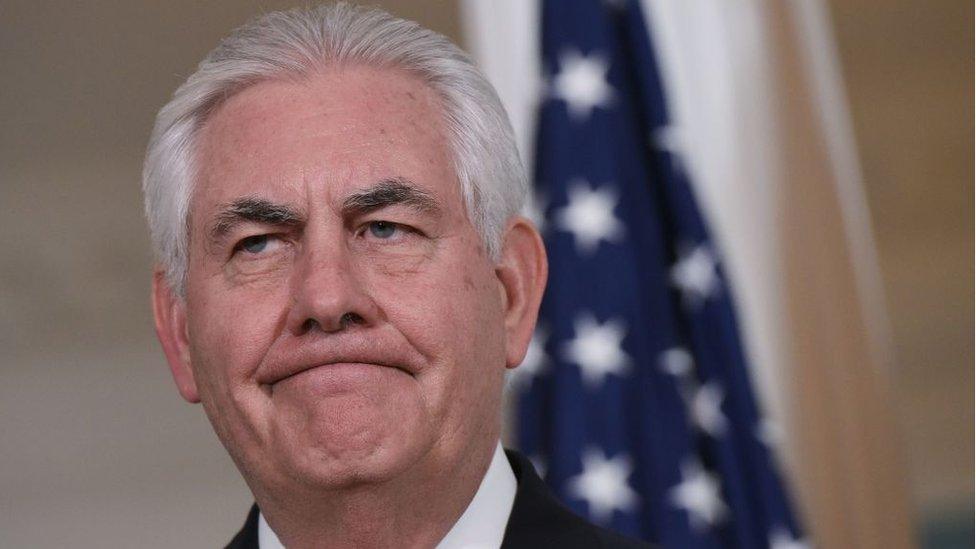
Mr Tillerson says the US military strategy is still focused on defeating the so-called Islamic State
He even suggested the international coalition might act to remove him, but it's not clear what he meant. In and of itself, Trump's military strike does not change the balance of power on the ground in a way to achieve that.
And Tillerson spoke of a long-term goal that would come after the defeat of ISIS and within the context of a political process. In fact the administration does not appear to have a fully formed policy on Assad yet, or even on Syria.
This radically ups the ante against Russia
The administration has been unusually forceful in calling out Russia over the chemical weapons attack, ending for now any hope of a Trump-style reset in relations.
Rex Tillerson accused Russia of being either complicit or incompetent because it had failed to guarantee that Assad would give up all his chemical weapons.
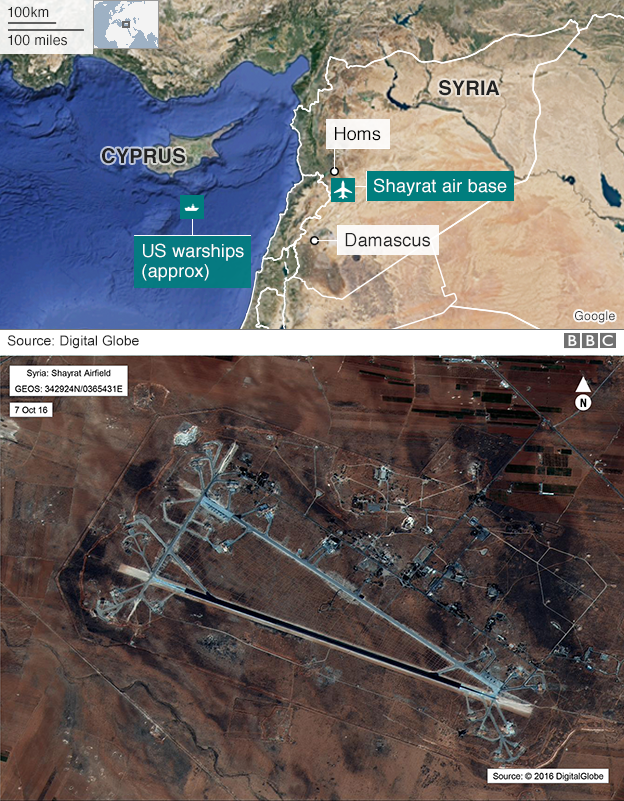
And the Pentagon is investigating whether Russian military advisers on the ground had any involvement in the chemical strike.
The Russians have responded with fierce criticism, but so far no sign of a military confrontation. According to one report, external they don't even seem to have used their air defence systems against the incoming tomahawk missiles.
Which suggests that underneath the outrage they might be prepared to respond with a dose of realism. We'll learn more about that when Tillerson visits Moscow next week.
But otherwise there's broad political support
Western and Arab allies have lined up in support of Trump's strike. So have key Congress people on both sides of the aisle.
How has Trump's position on Syria changed?
They're able to agree that it was a "proportional" response to a brutal attack, a limited action with a clear objective.
It's also a salve to those who were distressed by Obama's step back from the red line, particularly Sunni Arab allies and the foreign policy establishment in Washington.
They saw it as weakening US deterrent credibility. Some lawmakers have demanded that Trump consult Congress in the event of an escalation, a recognition that he may have opened the door to unwanted conflict.
- Published7 April 2017
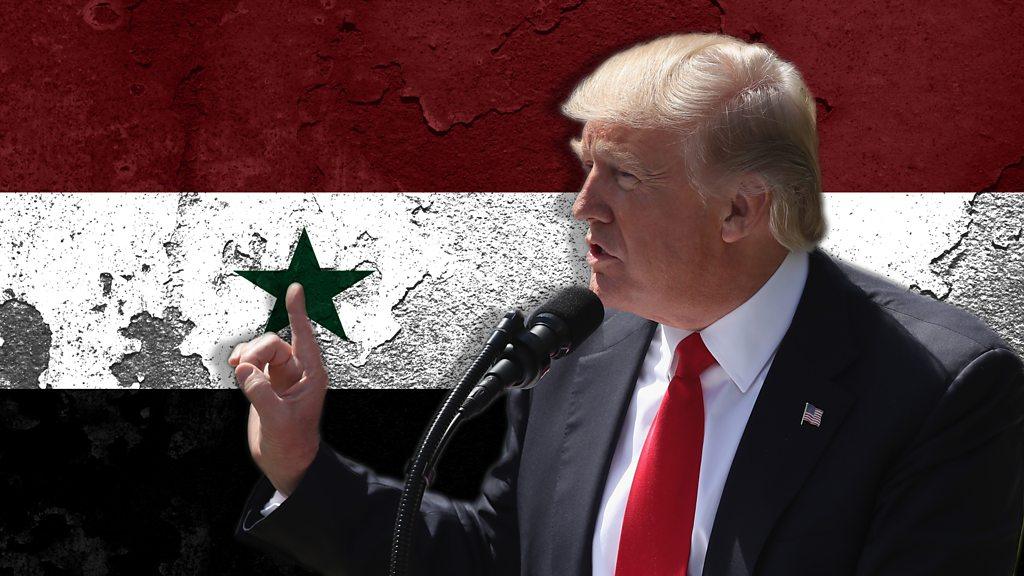
- Published7 April 2017
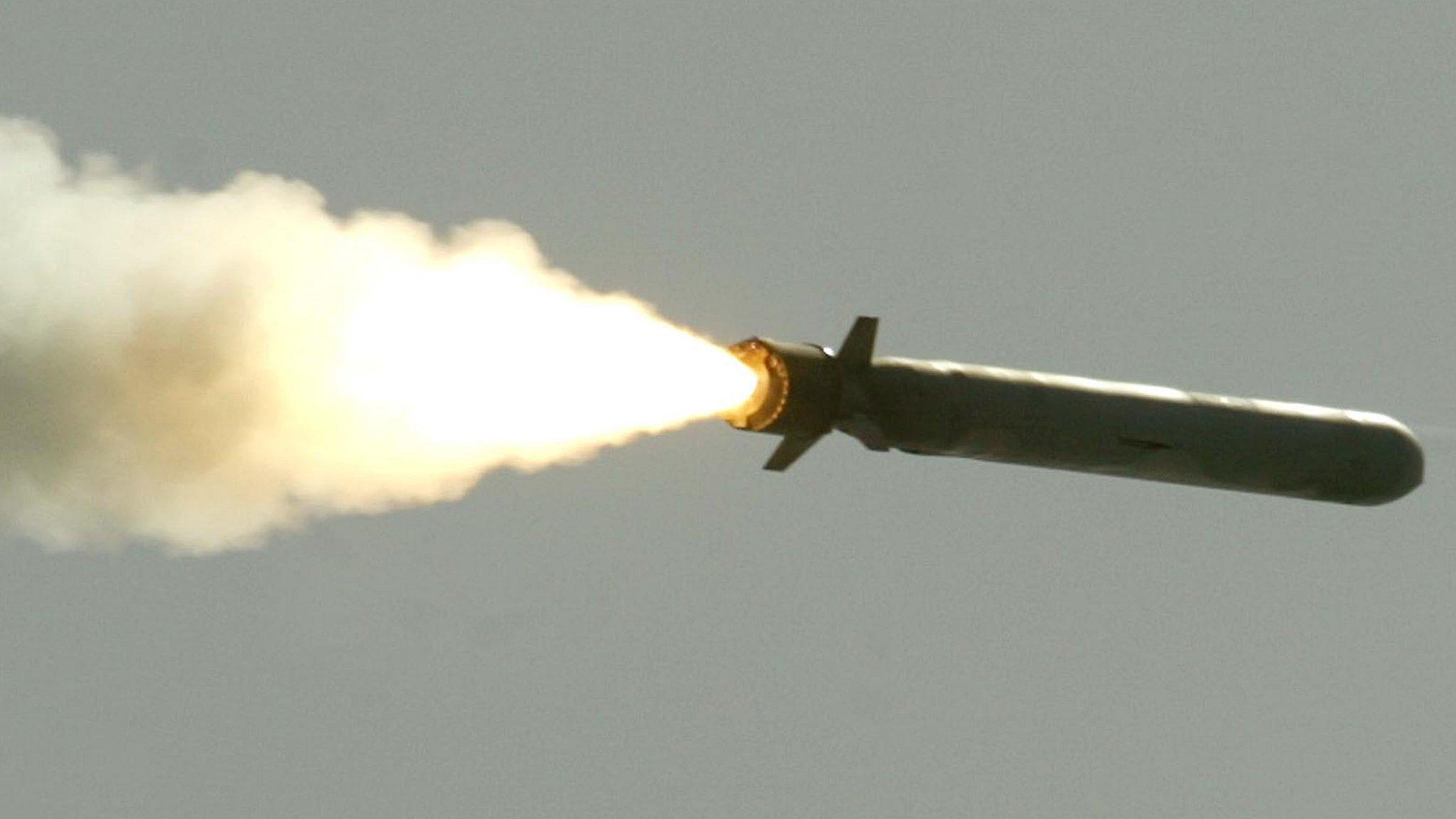
- Published7 April 2017
